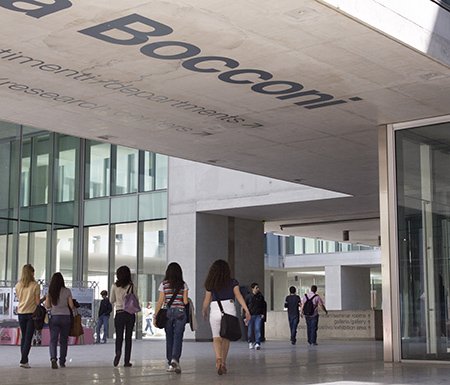PhD Seminar Series: Clara Depalma & Rujuta Bhagwat

“The experts and the crowd: the interplay between expert evaluations and consumer reviews ”
by Clara Depalma - Bocconi University
(with Giada Di Stefano & Saverio Dave Favaron)
and
“EU-ETS policy effects on green innovation”
by Rujuta Bhagwat - Bocconi University
PAPER 1 - “The experts and the crowd: the interplay between expert evaluations and consumer reviews”
Speaker
Clara Depalma (Bocconi University)
Abstract
Nowadays, amateur reviewers and professional critics coexist in many markets and express their opinions on the same producers and offerings. To what extent should we expect the evaluations provided by consumers to conform to those provided by professional critics? And are all consumers equally subject to such conformity pressure? To examine these questions, we exploit a fortuitous partnership between Michelin, the editor of the most prestigious restaurant guide, and TripAdvisor, a prominent aggregator of consumer reviews for the restaurant industry. As a result of this partnership, the TripAdvisor pages of restaurants evaluated by the Michelin Guide were updated with a Michelin badge under the restaurant name and a direct link to the evaluation by Michelin inspectors. Using a difference-in-differences approach, we examine changes in reviews posted on TripAdvisor before and after the appearance of the Michelin evaluation relative to reviews posted on Yelp, a similar platform that did not introduce any Michelin-related information. Our results reveal that amateur reviewers significantly changed their evaluations when the opinion of experts became more salient. The change was reflected in both the form and substance of their reviews, with differential treatment effects depending on the status of the amateur evaluators on the review platform.
PAPER 2 - “EU-ETS policy effects on green innovation”
Speaker
Rujuta Bhagwat (Bocconi University)
Abstract
The European Union Emissions Trading System (EU ETS), the world’s largest carbon market, was established to reduce industrial greenhouse gas emissions via a cap-and-trade mechanism. By attaching a cost to carbon, the policy aims to reduce emissions and incentivize investment in low-carbon technologies. Green innovation—particularly in energy, materials, and heavy industry—is vital for meeting climate targets, yet it remains uncertain, capital-intensive, and often commercially risky. This research investigates how the EU-ETS Phase III (2013–2020) influenced green innovation across different modes of innovation. At the firm level, we explore whether compliance obligations led EU ETS–regulated companies to increase green patenting, engage in technology acquisition, or startup M&A. At the startup level, we examine whether increased market demand from incumbents for M&A exit translates into increased financing of climate-tech ventures. Using data from EUTL, PATSTAT, ORBIS, and PitchBook, we aim to identify changes in innovation outputs before and after the policy change. This project seeks to contribute new insights into how environmental regulation can stimulate systemic technological change across different modes of innovation.